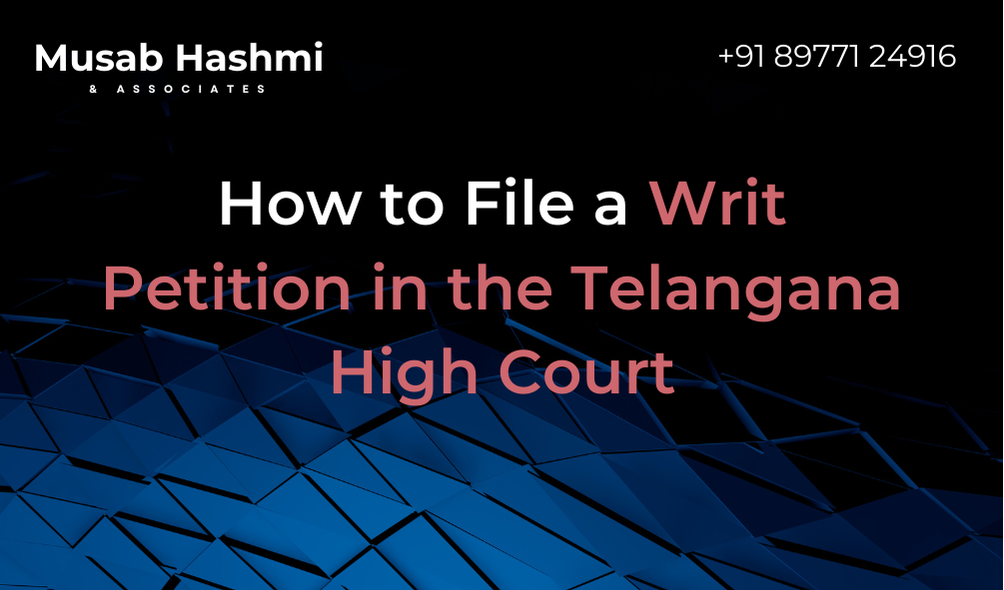How to File a Writ Petition in the Telangana High Court
A writ petition is a powerful legal tool that allows citizens to approach the judiciary directly when their fundamental rights are violated or when a public authority acts arbitrarily. If you’re planning to file a writ petition in the Telangana High Court, this guide outlines the process in simple and actionable steps.
What is a Writ Petition?
A writ petition is a formal request made to a high court or the Supreme Court of India seeking enforcement of constitutional rights or correction of an unlawful action. The Telangana High Court has the authority to issue writs under Article 226 of the Constitution of India.
Types of Writs
- Habeas Corpus: To seek release from unlawful detention.
- Mandamus: To compel a public authority to perform its duty.
- Certiorari: To quash an unlawful order passed by a lower court or tribunal.
- Prohibition: To prevent a lower court or tribunal from exceeding its jurisdiction.
- Quo Warranto: To question the legality of a person’s claim to a public office.
When Can You File a Writ Petition?
You can file a writ petition in the Telangana High Court if:
- Your fundamental rights are violated.
- A public authority acts in violation of the law.
- There is no adequate alternative legal remedy available.
Steps to File a Writ Petition
Step 1: Consult an Advocate
Engage a qualified lawyer experienced in writ petitions to:
- Assess the merits of your case.
- Draft the petition, ensuring it includes all relevant facts and legal arguments.
Step 2: Prepare the Petition
The writ petition should include:
- Details of the petitioner and respondent(s).
- A clear statement of facts.
- Grounds on which the writ is sought.
- Specific relief(s) requested.
- Supporting documents or evidence.
Step 3: File the Petition
- Submit the writ petition at the filing section of the Telangana High Court.
- Pay the prescribed court fees.
- Obtain a diary number as acknowledgment.
Step 4: Attend Hearings
Once the court admits your petition:
- Notices will be issued to the respondents.
- Attend hearings and present your arguments through your advocate.
- The court will deliver its judgment after reviewing the evidence and arguments.
Tips for a Strong Writ Petition
- Clarity: Clearly define the issue and relief sought.
- Evidence: Attach all necessary documents and records to support your case.
- Timeliness: File the petition promptly to avoid delays.
- Jurisdiction: Ensure the Telangana High Court has jurisdiction over the matter.
Why Hire an Advocate for a Writ Petition?
A lawyer experienced in writ petitions can:
- Draft the petition in line with legal requirements.
- Represent your case effectively in court.
- Navigate procedural complexities for a smooth process.
Conclusion
Filing a writ petition in the Telangana High Court is an effective way to seek justice when fundamental rights are violated or when public authorities act unlawfully. By understanding the process and consulting a qualified advocate, you can ensure that your petition is filed correctly and heard efficiently.

